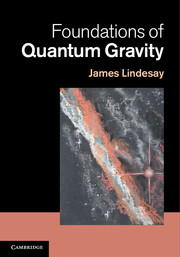Book contents
- Frontmatter
- Contents
- Preface
- Notations and Conventions
- Introduction
- Part I Galilean and special relativity
- Part II General relativity
- Appendix A Addendum for Chapter 1
- Appendix B Addendum for Chapter 2
- Appendix C Addendum for Chapter 3
- Appendix D Addendum for Chapter 4
- Appendix E Addendum for Chapter 5
- Appendix F Addendum for Chapter 7
- Appendix G Addendum for Chapter 8
- References
- Index
Appendix A - Addendum for Chapter 1
Published online by Cambridge University Press: 05 July 2013
- Frontmatter
- Contents
- Preface
- Notations and Conventions
- Introduction
- Part I Galilean and special relativity
- Part II General relativity
- Appendix A Addendum for Chapter 1
- Appendix B Addendum for Chapter 2
- Appendix C Addendum for Chapter 3
- Appendix D Addendum for Chapter 4
- Appendix E Addendum for Chapter 5
- Appendix F Addendum for Chapter 7
- Appendix G Addendum for Chapter 8
- References
- Index
Summary
Groups and special relativity
Fundamentals of group theory
Properties of groups
A group is a set of elements that have the following properties:
• Contains the identity transformation 1;
• If E and E′ are elements in the group, then there exists a group operation (generically called “multiplication”) that always produces an element of the group, E″ = E′ · E (closure);
• For every transformation element E, there exists in the group an inverse element E-1, where E-1 • E = 1;
• The group operation is associative, E′ · (E′ · E) = (E″ · E′) · E.
A particular type of group satisfies an additional property. For an abelian group, the group operation yields the same answer regardless of the order, E′ · E = E · E′. Often, a subset of the elements within a group satisfies all four group properties. This subset is referred to as a subgroup.
Generally, two different groups are isomorphic if there is a one-to-one relationships between the elements of the groups with regards to group operations. More generally, if a set of elements in one group are in direct relationship with one element in another, the groups are homomorphic.
A particular class of groups is quite useful for describing transformations in quantum physics. Invertible N × N matrices (i.e., matrices with non-vanishing determinants) form the set of linear groups.
- Type
- Chapter
- Information
- Foundations of Quantum Gravity , pp. 357 - 364Publisher: Cambridge University PressPrint publication year: 2013

